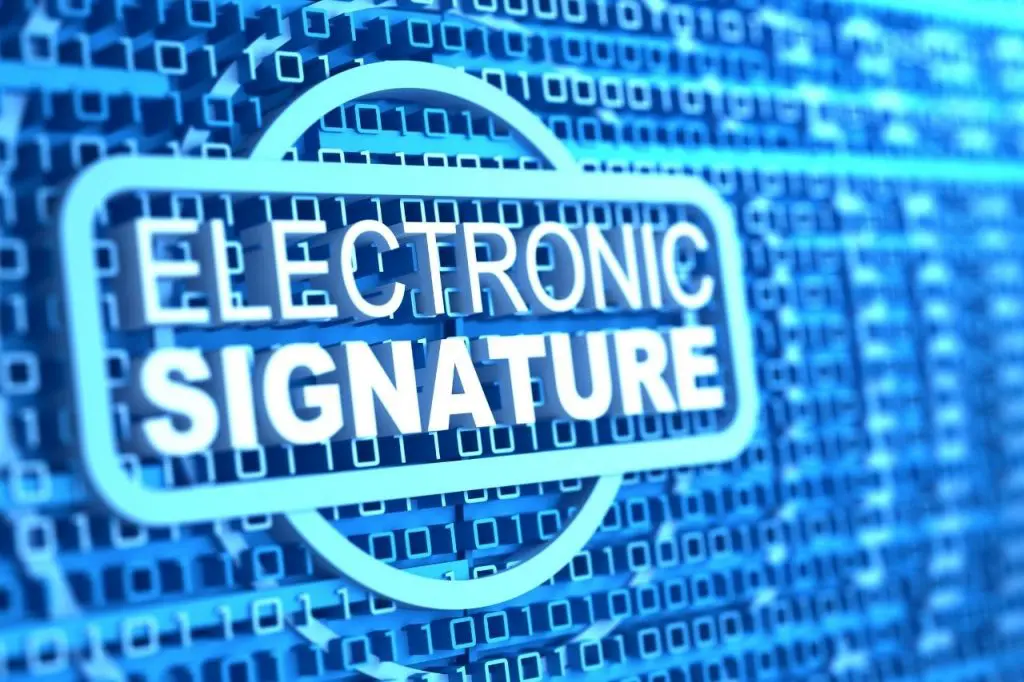As a business owner in the 2000s, you probably have heard about the Electronic Signature Act (ESIGN Act). This law was passed to make it legal for businesses to conduct transactions electronically.
It covers everything from digitally signing contracts to paying bills.
If you need to become more familiar with the ESIGN Act or how it affects your business, you’re in the right place. In this article, we’ll discuss the basics of the Electronic Signature Act and explore some benefits it offers to companies and consumers.
Table of Contents
- What Is the Electronic Signature Act and What Does It Do?
- How Does the ESIGN Act Impact Businesses and Consumers Nationwide?
- What Are Some of the Benefits of Using Electronic Signatures?
- Are There Any Risks Associated With Using Electronic Signatures?
- How Can Businesses and Consumers Take Advantage of the ESIGN Act?
- Final Thoughts
What is the ESIGN Act of 2000?
The Electronic Signature Act, or the ESIGN Act, is a federal law passed in 2000 to promote electronic signatures and records.
The act provides legal recognition and enforcement of electronic signatures and establishes specific standards for their use.
The act applies to all types of contracts, not just those involving the sale of goods or services. For a document to be legally binding, an electronic signature must be attached to or logically associated with the document or record it is intended to sign.
Additionally, the signer must have consented to use their electronic signature. This federal law has helped promote electronic signatures in various transactions, from personal contracts to business deals.
How does the ESIGN Act impact businesses and consumers nationwide?

The passing of the Electronic Signature Act in 2000 was a significant win for businesses and consumers alike. The act allowed companies to conduct transactions electronically, saving time and money.
It also increased the efficiency of many business processes and helped to streamline contract management.
The act has been credited with helping accelerate the growth of e-commerce and has had a significant impact on how businesses operate. The ESIGN Act has helped protect consumers by establishing electronic signatures and records standards.
This has given consumers more confidence in conducting transactions online and has helped reduce fraud.
What are the major benefits of using electronic signatures?
Let’s explore some benefits of using electronic signatures:
- Convenience – Businesses can save time by conducting transactions electronically, and consumers can avoid traveling to sign documents in person. Electronic signatures also make it easy to sign documents anywhere if you have an internet connection.
- Security – Electronic signatures are more secure than traditional signatures. With a reputable eSignature solution, businesses can verify the signer’s identity and track when and where a document was signed. It helps to prevent fraud and increases the security of business deals.
- Cost-Effective – Electronic signatures are also more cost-effective than traditional signatures. Businesses save on printing and mailing costs, and consumers save on travel costs. Electronic signatures can help companies close deals faster, leading to increased revenue.
- Environment-Friendly – Since electronic signatures eliminate the need for paper, they’re also more environmentally friendly. It helps businesses avoid paper printing, which is better for the environment.
Are risks associated with using electronic signatures?
A few risks are associated with using electronic signatures, but you can mitigate them with proper security measures. Here are a few ways to combat these risks.
First, verifying the signer’s identity is important to ensure they are who they say they are. Typical cloud-based eSigning solutions have features that simplify this by requiring a government-issued ID or two-factor authentication.
Second, you’ll want to ensure that the document is securely transmitted and stored, and this means using an eSignature platform that provides a secure server and encryption for documents.
Finally, you should be able to track when and where the document was signed. You can use this information to verify the signature’s authenticity and track down if the signer encountered any problems in the signing process.
How can businesses and consumers take advantage of the ESIGN Act?

The Electronic Signature Act provides legal certainty for businesses and consumers using electronic signatures and documents. The act ensures that electronic signatures and records are just as legally binding as traditional paper documents.
This gives companies and consumers the flexibility to conduct transactions electronically without worrying about the legal validity of their signatures.
Here are 3 easy steps that can help businesses and consumers reap the full benefit of the ESIGN Act:
1. Ensure that any electronic signature software you use complies with federal law.
2. Keep accurate records of any transactions conducted electronically if there is ever any dispute about the terms of the agreement.
3. Ensure all parties to the transaction have a clear understanding of the terms of the agreement before any electronic signature is affixed.
The ESIGN Act has been a boon to businesses and consumers, making conducting business electronically much simpler and more efficient.
Final Thoughts
The Electronic Signatures in Global and National Commerce Act, or ESIGN for short, is a federal law enacted in 2000 to encourage electronic signatures within businesses and transactions. It provides a legal framework for electronic signatures. Also, it ensures that these signatures have the same legal weight as handwritten signatures.
Businesses and consumers across the United States have so much to benefit from this ESIGN act.
If you are open to exploring electronic signatures on your business documents, Fill is an industry-compliant option you can explore right away.




